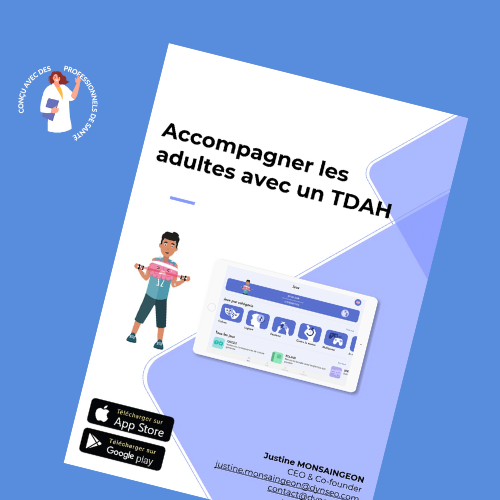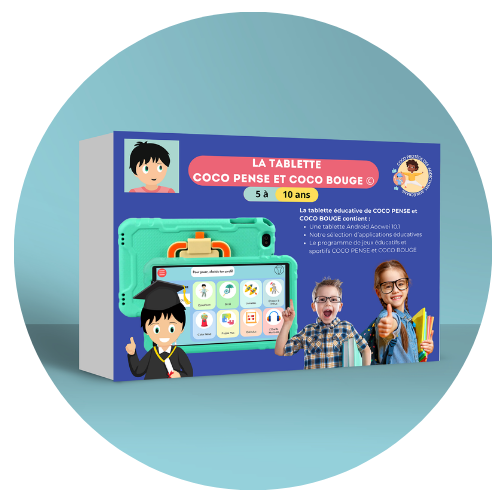L’impulsivité chez l’adulte atteint de TDAH est un sujet important à comprendre et à gérer pour améliorer la qualité de vie. Le TDAH, ou trouble du déficit de l’attention avec hyperactivité, est un trouble neurologique qui affecte la capacité d’une personne à se concentrer et à contrôler ses impulsions. L’impulsivité est l’un des symptômes clés du TDAH chez les adultes, et elle peut avoir des conséquences significatives sur la vie quotidienne. Il est donc essentiel de comprendre les causes de l’impulsivité chez les adultes atteints de TDAH et d’apprendre des techniques pour la gérer efficacement.
Comprendre l’impulsivité chez l’adulte TDAH
L’impulsivité peut être définie comme un comportement ou une action effectuée sans réflexion préalable. Chez les adultes atteints de TDAH, l’impulsivité est souvent le résultat d’une difficulté à inhiber les réponses automatiques et à prendre en compte les conséquences à long terme de leurs actions. Les personnes atteintes de TDAH ont souvent du mal à réguler leurs émotions et à contrôler leurs impulsions, ce qui peut entraîner des comportements impulsifs.
Les causes de l’impulsivité chez les adultes atteints de TDAH peuvent être multiples. Des facteurs génétiques, environnementaux et neurobiologiques peuvent tous contribuer au développement de l’impulsivité chez ces individus. Par exemple, des études ont montré que certaines variations génétiques peuvent augmenter le risque de développer des comportements impulsifs chez les personnes atteintes de TDAH. De plus, des facteurs environnementaux tels que le stress, les traumatismes ou l’exposition à des substances toxiques peuvent également jouer un rôle dans le développement de l’impulsivité.
Les symptômes de l’impulsivité chez les adultes atteints de TDAH peuvent varier d’une personne à l’autre, mais ils incluent généralement des comportements tels que l’incapacité à attendre son tour, l’interruption fréquente des autres lorsqu’ils parlent, la difficulté à prendre des décisions réfléchies et la tendance à agir sans réfléchir aux conséquences. Ces symptômes peuvent avoir un impact significatif sur la vie quotidienne, tant sur le plan personnel que professionnel.
Les conséquences de l’impulsivité sur la vie quotidienne
L’impulsivité chez les adultes atteints de TDAH peut entraîner de nombreuses difficultés dans la vie quotidienne. Sur le plan relationnel, les comportements impulsifs peuvent causer des tensions et des conflits avec les proches. Les personnes atteintes de TDAH peuvent avoir du mal à écouter les autres, à respecter les limites personnelles et à gérer leurs émotions, ce qui peut entraîner des problèmes de communication et une détérioration des relations.
Sur le plan professionnel, l’impulsivité peut également poser problème. Les adultes atteints de TDAH peuvent avoir du mal à se concentrer sur une tâche pendant une période prolongée, à respecter les délais et à prendre des décisions réfléchies. Cela peut entraîner des problèmes de performance au travail, des difficultés à maintenir un emploi stable et des conflits avec les collègues ou les supérieurs hiérarchiques.
Enfin, l’impulsivité peut également avoir des conséquences sur la santé physique et mentale. Les personnes atteintes de TDAH peuvent être plus susceptibles de prendre des risques, comme la consommation excessive d’alcool ou de drogues, la conduite imprudente ou la participation à des comportements à risque. De plus, l’impulsivité peut également contribuer au développement de troubles de l’humeur tels que l’anxiété et la dépression.
Les techniques de relaxation pour réduire l’impulsivité
La relaxation peut être une technique efficace pour réduire l’impulsivité chez les adultes atteints de TDAH. La respiration profonde est l’une des techniques les plus simples et les plus accessibles pour se détendre. En prenant le temps de respirer profondément et lentement, on peut calmer le système nerveux et réduire les niveaux de stress et d’anxiété.
La relaxation musculaire progressive est une autre technique qui peut aider à réduire l’impulsivité. Cette technique consiste à contracter et à relâcher progressivement les différents groupes musculaires du corps, ce qui permet de relâcher les tensions accumulées et d’induire un état de relaxation profonde.
La méditation est également une pratique bénéfique pour réduire l’impulsivité chez les adultes atteints de TDAH. La méditation permet de se concentrer sur le moment présent, d’observer ses pensées et ses émotions sans y réagir immédiatement, ce qui peut aider à développer une plus grande maîtrise de soi et à réduire les comportements impulsifs.
Les stratégies de gestion de l’anxiété pour éviter les comportements impulsifs
La gestion de l’anxiété est cruciale pour contrôler les comportements impulsifs, en particulier chez les adultes atteints de TDAH. Une approche multifacette, combinant l’identification des sources d’anxiété, les techniques de gestion du stress, et une communication efficace, peut s’avérer bénéfique. Voici quelques stratégies supplémentaires et détaillées pour enrichir cette gestion :
Identification et Compréhension de l’Anxiété
- Journal des pensées : Tenir un journal quotidien des pensées, des émotions, et des situations vécues aide à identifier les déclencheurs spécifiques de l’anxiété et à reconnaître les schémas de pensée négatifs.
- Techniques de pleine conscience : Pratiquer la pleine conscience peut aider à observer les pensées et les émotions sans jugement, facilitant ainsi la gestion de l’anxiété au moment où elle se présente.
Techniques de Gestion du Stress
- Exercice physique : L’activité physique régulière, comme la marche, le jogging, le yoga, ou le vélo, peut réduire significativement les niveaux d’anxiété et améliorer l’humeur grâce à la libération d’endorphines.
- Techniques de relaxation : Des méthodes telles que la respiration profonde, la visualisation guidée, ou le yoga peuvent aider à apaiser le système nerveux et à réduire l’anxiété.
- Méditation et mindfulness : La méditation de pleine conscience aide à se recentrer sur le moment présent, diminuant ainsi les préoccupations anxieuses liées au passé ou à l’avenir.
Cultiver une Communication Assertive
- Ateliers de communication : Participer à des ateliers ou à des séances de coaching sur la communication assertive peut fournir des outils et des stratégies pour exprimer ses besoins de manière efficace.
- Pratique de l’écoute active : S’entraîner à écouter activement les autres améliore les interactions sociales et réduit les malentendus, contribuant ainsi à diminuer l’anxiété dans les relations.
Autres Stratégies Complémentaires
- Gestion du temps et organisation : Utiliser des outils d’organisation et de planification pour gérer efficacement son temps peut réduire l’anxiété liée aux deadlines et aux surcharges de travail.
- Soutien professionnel : Consulter un psychologue ou un thérapeute spécialisé dans le TDAH et l’anxiété peut fournir des stratégies personnalisées de gestion de l’anxiété et des comportements impulsifs.
- Réseaux de soutien : Rejoindre des groupes de soutien pour les adultes atteints de TDAH peut offrir une communauté compréhensive où partager des expériences et des stratégies de gestion de l’anxiété.
En adoptant ces stratégies et en les intégrant dans un plan de gestion globale de l’anxiété, les adultes atteints de TDAH peuvent trouver un soulagement significatif et éviter les comportements impulsifs qui en découlent. Il est essentiel de se rappeler que la patience et la persévérance sont clés dans ce processus, et qu’il est souvent utile de combiner plusieurs approches pour trouver le meilleur équilibre individuel.
La méditation pour améliorer la concentration et la maîtrise de soi

La méditation peut être particulièrement bénéfique pour les personnes atteintes de TDAH, car elle peut aider à améliorer la concentration et la maîtrise de soi. La méditation permet de développer une plus grande conscience de ses pensées et de ses émotions, ce qui peut aider à mieux les réguler et à éviter les comportements impulsifs.
Il existe différentes techniques de méditation qui peuvent être utilisées par les personnes atteintes de TDAH. Par exemple, la méditation de pleine conscience consiste à se concentrer sur le moment présent, en observant ses pensées et ses sensations sans y réagir immédiatement. La méditation guidée est une autre technique qui peut être utile, car elle utilise des instructions verbales pour guider la pratique de la méditation.
Pour intégrer la méditation dans sa routine quotidienne, il est recommandé de commencer par de courtes séances de méditation, par exemple 5 à 10 minutes par jour, et d’augmenter progressivement la durée au fur et à mesure que l’on devient plus à l’aise avec la pratique. Il peut également être utile de trouver un endroit calme et tranquille où l’on peut se détendre et se concentrer sans être dérangé.
La pratique régulière d’une activité physique pour canaliser l’énergie
La pratique régulière d’une activité physique peut être extrêmement bénéfique pour les personnes atteintes de TDAH, car elle permet de canaliser l’énergie excessive et d’améliorer la concentration. L’activité physique libère des endorphines, des substances chimiques du cerveau qui procurent une sensation de bien-être et qui peuvent aider à réduire les niveaux d’anxiété et de stress.
Il existe différents types d’activités physiques recommandées pour les personnes atteintes de TDAH. Les activités aérobiques, telles que la course à pied, la natation ou le vélo, sont particulièrement bénéfiques car elles stimulent la production d’endorphines et favorisent la concentration. Les activités qui nécessitent une coordination et une concentration, comme le yoga ou la danse, peuvent également être utiles pour améliorer la maîtrise de soi et la concentration.
Pour intégrer l’activité physique dans sa routine quotidienne, il est recommandé de choisir des activités qui procurent du plaisir et qui peuvent être pratiquées régulièrement. Il peut être utile de fixer des objectifs réalistes et d’établir un horaire régulier pour l’activité physique, afin de s’assurer qu’elle devienne une habitude durable.
La thérapie comportementale pour apprendre à anticiper les conséquences de ses actes
La thérapie comportementale peut être une approche efficace pour aider les adultes atteints de TDAH à apprendre à anticiper les conséquences de leurs actes et à développer des stratégies pour gérer leur impulsivité. La thérapie comportementale se concentre sur l’apprentissage de nouvelles compétences et sur le renforcement des comportements positifs.
Les principes de base de la thérapie comportementale consistent à identifier les comportements problématiques, à analyser les antécédents et les conséquences de ces comportements, et à développer des stratégies alternatives pour faire face aux situations difficiles. Par exemple, un thérapeute peut aider un adulte atteint de TDAH à identifier les situations qui déclenchent son impulsivité et à développer des stratégies pour gérer ces situations de manière plus efficace.
Les techniques utilisées en thérapie comportementale peuvent inclure la modification des pensées négatives, l’apprentissage de techniques de relaxation, la pratique de compétences sociales et la mise en place de renforcements positifs pour les comportements souhaités. La thérapie comportementale peut être réalisée individuellement ou en groupe, en fonction des besoins de chaque individu.
L’utilisation d’un agenda pour mieux organiser ses tâches et éviter les distractions
L’utilisation d’un agenda peut être extrêmement utile pour les adultes atteints de TDAH, car elle permet de mieux organiser ses tâches et d’éviter les distractions. Un agenda peut aider à planifier les activités quotidiennes, à fixer des objectifs réalistes et à établir des priorités.
Les avantages de l’utilisation d’un agenda sont nombreux. Il permet de visualiser les tâches à accomplir, de planifier le temps nécessaire pour chaque tâche et d’éviter les oublis. De plus, un agenda peut également aider à gérer le temps de manière plus efficace, en évitant les distractions et en se concentrant sur les tâches importantes.
Pour utiliser un agenda efficacement, il est recommandé de le consulter régulièrement, de noter toutes les tâches à accomplir et de les classer par ordre d’importance. Il peut également être utile de fixer des rappels ou des alarmes pour les tâches importantes, afin de s’assurer qu’elles ne sont pas oubliées.
Il existe de nombreuses applications d’agenda disponibles pour les personnes atteintes de TDAH, qui offrent des fonctionnalités supplémentaires telles que des rappels, des listes de tâches et des options de synchronisation avec d’autres appareils. Certaines applications populaires incluent Google Agenda, Todoist et Any.do.
Les astuces pour éviter les impulsions alimentaires et les achats compulsifs
AND FOR MORE INFORMATION
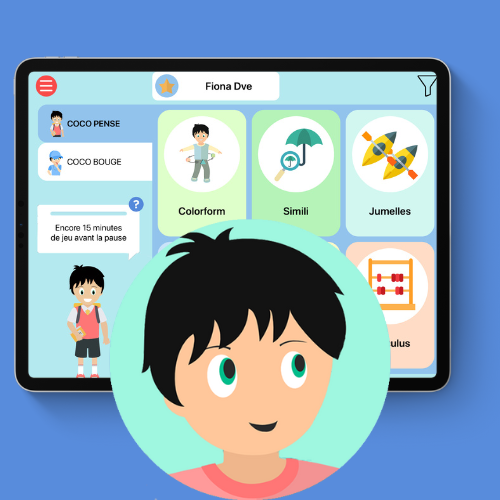
COCO, EDUCATIONAL GAMES FOR TDAH CHILDREN
Coco thinks and Coco moves is an educational play program for ADHD children aged 5 to 10. A variety of games to work on all cognitive functions. A compulsory sports break every 15 minutes of screen time. Smartphone and tablet.
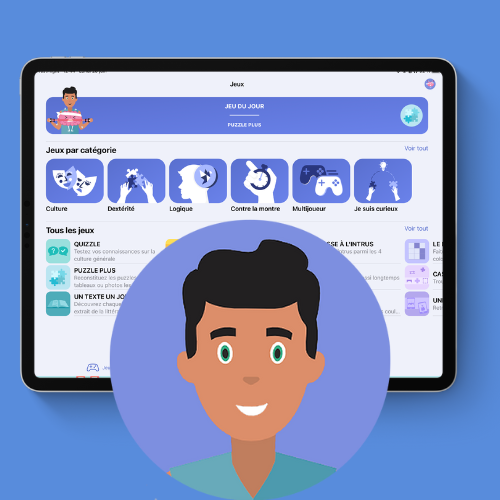
JOE, FOR TDAH TEENS AND ADULTS
The JOE program, your brain coach, will help dyspraxic teenagers and adults. They can search for games by cognitive function. Joe will also be able to recommend the games best suited to each user’s needs. Smartphone and tablet.
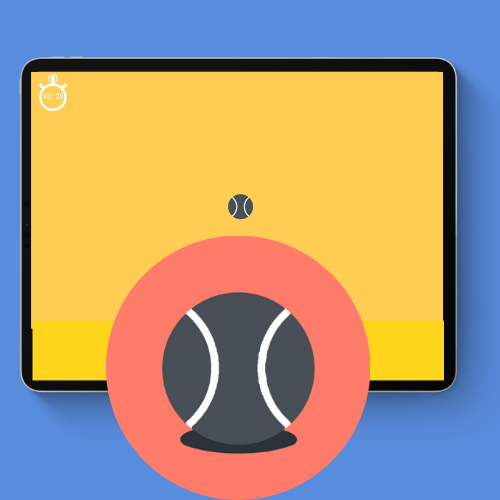
THE ROLLING BALL FOR CONCENTRATION
Bille qui Roule is an application for working on attention and concentration, using the tablet as a pendulum to perform exercises. Customizable exercises to suit each individual’s level. You can also track your progress within the application.
Other articles that might interest you:
Recognizing ADHD in Children: Signs to Look For
Attention Deficit Hyperactivity Disorder (ADHD) is a neurodevelopmental disorder that affects a significant number of...
Managing ADHD and Anxiety: Tips for Finding Balance
Attention Deficit Hyperactivity Disorder (ADHD) and anxiety are two distinct yet often overlapping conditions that can...
Managing Combined ADHD: Strategies for Success
Attention Deficit Hyperactivity Disorder (ADHD) is a neurodevelopmental disorder that manifests in various forms, with...


